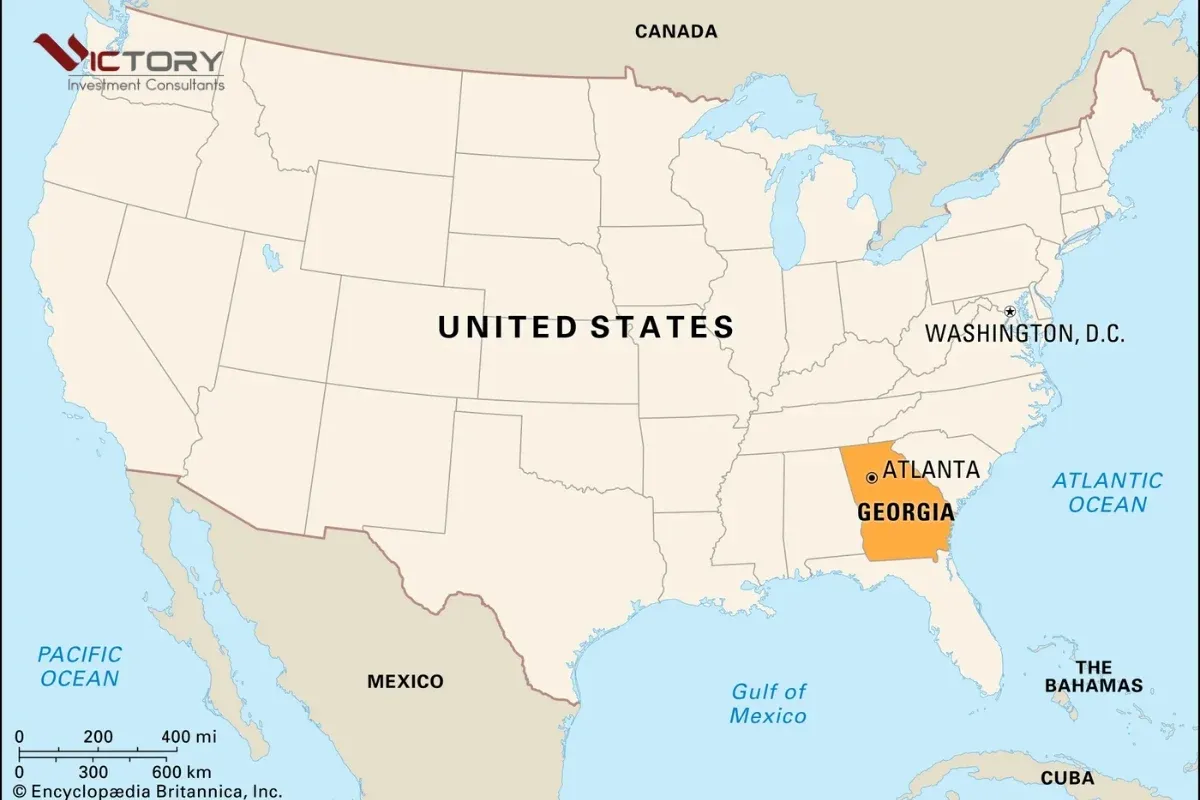Georgia, a Southern state famed for its peach orchards and warm hospitality, harbors a turbulent history shaped by conflicts and wars. From colonial clashes through the American Revolution and the brutal Civil War, Georgia has witnessed pivotal battles, each etching its mark on national and local history. This article takes you back in time, exploring the most resonant battles on Georgian soil, where a heroic and tragic past still echoes today.
Colonial Georgia and the American Revolution
Georgia, the youngest of the original Thirteen Colonies, quickly became a hotspot for conflict among European powers and Native American tribes. Georgia’s strategic location, nestled between British Carolina and Spanish Florida, made it a fiercely contested territory.
The War of Jenkins’ Ear (1739-1748)
Though lesser-known than other colonial wars, the War of Jenkins’ Ear significantly impacted Georgia. This war, fought between Britain and Spain, largely unfolded in the Caribbean and along the border between Georgia and Spanish Florida. James Oglethorpe, the founder of Georgia, led colonial forces against the Spanish, attempting to invade Florida unsuccessfully. Conversely, Spanish attacks on Georgia were repelled. This war solidified Georgia’s role as a crucial buffer zone protecting other British colonies from southern incursions.
The American Revolution (1775-1783) and the Georgia Front
As the American Revolution ignited, Georgia initially hesitated to join the independence movement. However, by 1778, war had reached Georgia, transforming it into a vital Southern theater.
Siege of Savannah (1779)
Savannah, a crucial Georgian port city, fell to British forces in late 1778. In 1779, combined French and American forces launched a siege to reclaim the city. The Siege of Savannah was among the largest military operations of the Revolutionary War in the South. General Benjamin Lincoln of the Continental Army and Admiral Charles Hector, Comte d’Estaing of the French Navy, joined forces to attack Savannah. However, after weeks of intense fighting, the French and Americans failed to breach the British defenses commanded by Lieutenant General Augustine Prévost. The siege failed, Savannah remained under British control until the war’s end, marking a significant setback for the Revolutionary cause in the South.
Battle of Kettle Creek (1779)
The Battle of Kettle Creek, fought on February 14, 1779, was a crucial Patriot militia victory in Georgia. Under Colonel Andrew Pickens’ command, Patriot militia defeated a larger Loyalist force led by Lieutenant Colonel John Boyd. The Kettle Creek victory held immense morale significance, boosting Patriot spirits in Georgia and demonstrating that the British could not entirely control the countryside. This battle also drew more Georgians to the Patriot cause.
Recapture of Augusta (1781)
Augusta, another important Georgian city, was captured by the British in 1780. In 1781, Patriot forces, under Andrew Pickens and Elijah Clarke, besieged and recaptured Augusta after a protracted siege. This victory, along with Kettle Creek, helped the Patriots regain control of much of Georgia and set the stage for the overall American victory in the Revolution.

The American Civil War (1861-1865) and Georgia
Georgia played a central role in the American Civil War, both militarily and economically. The state joined the Confederacy and became one of the war’s fiercest battlegrounds.
Atlanta Campaign (1864)
The Atlanta Campaign was a series of battles fought from May to September 1864 across northern Georgia as Union General William Tecumseh Sherman advanced towards Atlanta. Sherman’s objective was to capture Atlanta, a vital Confederate industrial and railway hub.
Battle of Kennesaw Mountain (1864)
The Battle of Kennesaw Mountain, fought on June 27, 1864, was among the bloodiest battles of the Atlanta Campaign. Union forces launched a direct assault on entrenched Confederate positions on Kennesaw Mountain but suffered heavy casualties and were forced to retreat. Despite a Confederate tactical victory, the Battle of Kennesaw Mountain failed to halt Sherman’s advance on Atlanta.
Battle of Atlanta (1864)
The Battle of Atlanta, fought on July 22, 1864, was another major engagement in the Atlanta Campaign. Confederate forces, under General John Bell Hood, attempted to attack Union forces besieging Atlanta but were unsuccessful. This battle marked a crucial turning point in the Atlanta Campaign, as Confederate forces no longer possessed the strength to prevent Union capture of the city.
Fall of Atlanta and Aftermath
After months of intense fighting, Atlanta finally fell to Union forces on September 2, 1864. The capture of Atlanta was a massive military and political victory for the Union, bolstering Northern morale and contributing to Abraham Lincoln’s victory in the 1864 presidential election. However, the fall of Atlanta also paved the way for one of the most controversial actions of the Civil War: Sherman’s March to the Sea.
Sherman’s March to the Sea (1864)
Following the capture of Atlanta, General Sherman commenced his devastating March to the Sea, lasting from November to December 1864. Union troops marched from Atlanta to Savannah, wreaking havoc in their path, burning homes, farms, railroads, and Confederate infrastructure. Sherman’s objective was to break the South’s will to fight and cripple the Confederacy’s ability to wage war. The March to the Sea inflicted immense damage on Georgia and left deep scars in the collective memory of its people.

Battle of Chickamauga (1863) – Prelude to the Atlanta Campaign
Although the Battle of Chickamauga was fought just outside Georgia’s border, in southeastern Tennessee in September 1863, it is closely linked to Georgia’s wartime history. The Battle of Chickamauga was one of the bloodiest battles of the Civil War and a major Confederate victory. However, this victory failed to prevent Union forces from continuing their advance into the South, directly leading to the Atlanta Campaign the following year. Chickamauga is often considered the “gateway” to Georgia in the Civil War, and understanding this battle is crucial to understanding the context of subsequent battles on Georgian soil.
Conclusion
Georgia’s history is deeply intertwined with wars and conflicts. From colonial battles to the American Revolution and the devastating Civil War, Georgia has been a battleground for numerous pivotal historical events. These battles not only shaped the state’s history but also profoundly impacted the destiny of the United States. Today, battlefields, cemeteries, and museums across Georgia stand as reminders of this region’s turbulent past. As visitors set foot in Georgia, they not only discover natural beauty and Southern charm but also have the opportunity to delve deeper into the battles that forged this state’s unique history and identity. Exploring Georgia is exploring a vital part of American history, where past and present merge, telling tales of heroism and tragedy for generations to come.